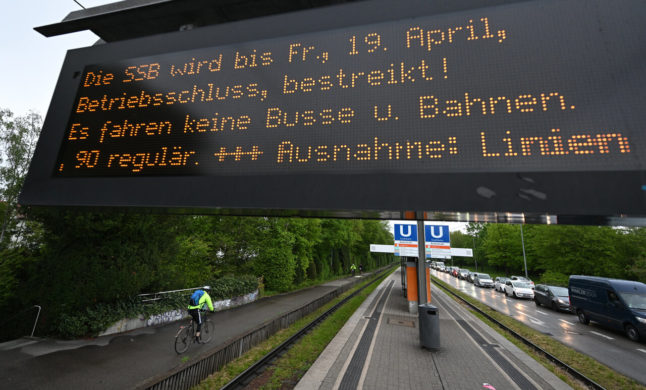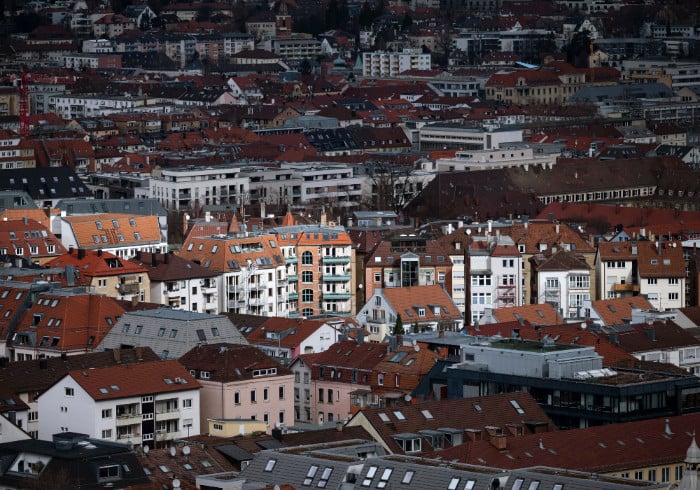Due to a warning strike by the trade union Verdi, neither U-Bahn trains nor trams will run in Munich on Thursday and Friday.
About half of the buses will also be cancelled, Verdi has announced.
From the beginning of operations on Thursday until the end of operations on Friday, all employees of the Munich public transport company (MVG) are called to take part in the warning strike. But even if some employees would like to turn up at work, the entire U-Bahn and tram system is set to be shut down for safety reasons.
Munich’s S-Bahn is, however, not affected by the work stoppages, as their operator is Deutsche Bahn. The Germany-wide transport system, however, may plan its own series of strikes later in March if current pay negotiations break down.
READ ALSO: Will Deutsche Bahn staff be next to strike in Germany?
According to Verdi, some of the buses are not participating in the strike, as they’re operated by private providers. This also includes school busses.
‘Frustration’
Verdi union secretary Franz Schütz told Bavarian media that he expects a high turnout for the warning strike, pointing to a high level of frustration among employees.
According to Verd spokeswoman Christine Behle, there is a separate collective agreement for MVG employees in Munich, which “is worse than” the regional collective agreement for public transport workers.
In the negotiations for approximately 2.5 million federal and municipal employees, the Verdi trade union and the civil servants’ association dbb are demanding 10.5 percent more income, but at least €500 more per month.
No agreement was reached in the second round of negotiations last week, with the unions rejecting the employers’ offer as insufficient.
On Friday there will be strikes around Germany, with the states of Hesse, North Rhine-Westphalia, Baden-Württemberg, Saxony, Lower Saxony and Rhineland-Palatinate set to be the most affected.
Mostly public transport workers will walk off the job, but other municipal workers, including daycare (Kita) staff and rubbish collectors, are also expected to participate, according to Verdi.
READ ALSO: Public transport disruption expected across Germany Friday as public transport workers go on strike




 Please whitelist us to continue reading.
Please whitelist us to continue reading.
Member comments